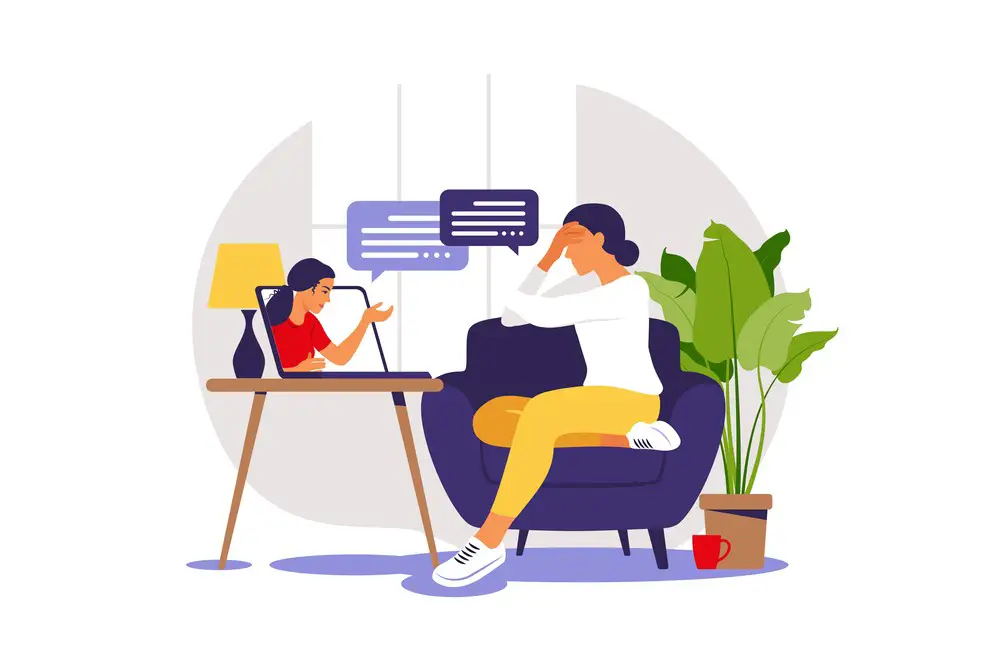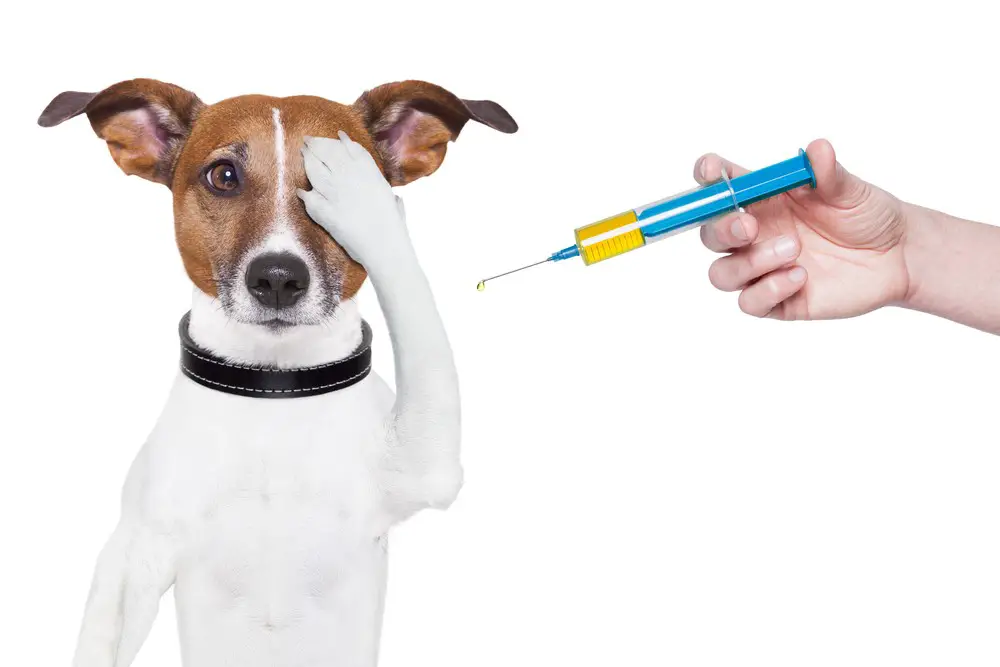As a BetterHelp affiliate, we receive compensation from BetterHelp if you purchase products or services through the links provided
Studies show that the phobia of needles, or trypanophobia (the extreme fear of needles), affects “up to 2 in 3 children” and “up to 16% of adults avoid getting vaccines because they’re afraid of needles”.
Therefore, it is no secret that this phobia is a widespread problem, with sufferers having their reasons for needles making them so afraid.
As anyone with a phobia will tell you, getting it under control is no easy task and can seem almost impossible if you don’t know where to start or the proper steps to take to make progress.
Phobias can become quite debilitating for some people, preventing them from going about their day-to-day life. And trypanophobia can make it impossible for some to go to the doctor and keep up with their regular check-ups or have any necessary treatments.
Luckily, there are plenty of helpful steps that can be taken to help tackle trypanophobia.
Many options are available, from psychological counseling and support groups to trying different coping mechanisms such as deep breathing exercises.
How Do Phobias Develop?
We all have fears, of course. But for some people, those fears become so exaggerated that it begins to affect their day-to-day life.
A phobia is an irrational fear that is out of proportion to the actual danger posed by the object or situation being feared. And phobias can begin at any age – from childhood to adulthood.
The precise cause of a phobia is not always known, but it can be triggered by a traumatic event or even witnessing someone else’s fear. It may also result from genetic factors or learned responses associated with some object or situation.
Needle phobia is often caused by a combination of factors, such as the sight or feeling of needles, the sound they make when puncturing the skin, and the potential pain involved.
The Cycle of Phobias
Phobias are ‘maintained’ as such by a maintenance cycle, which is an ongoing cycle of avoidance, fear, and distress that someone with phobia experiences.
Emotions
The needle phobia cycle begins with extreme anxiety or distress over the thought of undergoing a medical procedure involving a needle.
Physical Symptoms
Physical anxiety symptoms, such as increased heart rate and blood pressure or nausea, follow this.
Negative Thoughts
The person then experiences negative thoughts and beliefs, such as the inability to cope with the procedure or that it will be too painful.
Avoidance Behavior
These negative thoughts result in avoiding situations involving needles, like medical care or a trip to the doctor’s office.
When situations arise where they have to confront their fear, the cycle beings again with feelings of intense fear.
The key to overcoming needle fear is to break this maintenance cycle, which is easier said than done. It takes significant work and self-commitment to tackle this problem, but it can be done.
Read on for seven tips medical professionals recommend to overcome your fear of needles.

1. Take it Slow, and Don’t Overwhelm Yourself
If you fear needles (or any other phobia, for that matter), taking things slow and allowing yourself ample time to process the situation is essential.
Trying to force yourself to confront your phobia all at once can do lasting damage and worsen your fear response.
Coming to terms with the fact that you will have to confront your fear at some point is important, but the best way to do so is in incremental steps.
2. Learn About the Procedure
For some people who suffer from less-extreme cases of needle phobia, learning more about the medical procedure that involves needles can help them to overcome their fear.
Knowing what will happen and how it will feel can make it easier for them to accept it and prepare themselves mentally, helping to reduce the fear response.
However, this might not be helpful for those with a more acute response to needles since the thought alone can be enough to trigger a fear response.
Depending on the procedure that you are due to have, you can request a numbing agent to numb your skin beforehand. This will be particularly helpful if your infection fears result from the pain caused by needles.
Pain management techniques, like numbing agents, are available for several different medical procedures, so starting a conversation with your healthcare providers about this is essential.
3. Try Calming and Relaxation Techniques
The most important part of overcoming your needle phobia is to relax and remain calm amid fear.
Several techniques, such as deep breathing exercises or visualization methods, can help you remain calm and relaxed during the procedure.
The Psychological Society says that “when we breathe deeply using our diaphragm, we create pressure in our abdomen that stimulates the vagus nerve to secrete acetylcholine. Acetylcholine slows down the heart and increases the activity of the digestive system.”
These calming techniques can help reduce your heart rate and counteract the fear response, making it easier for you to go through the procedure.
Deep Breathing Techniques
Deep breathing is one of the most commonly used relaxation techniques.
To practice this technique, sit comfortably and close your eyes.
Take a deep breath through your nose and then slowly exhale through your mouth. Repeat this process several times until you feel more relaxed and at ease.
Exhaling for twice as long as you inhale can be a helpful way to increase the relaxation response.
4. Create a Coping Plan and Strategy
Creating a coping plan and strategy can be a helpful tool for helping to deal with your needle phobia.
This involves setting realistic goals, like arriving at the appointment on time or staying in the room while the procedure takes place.
It also involves breaking down complex tasks into small, achievable steps to make them easier to handle.
For example, if you want to stay in the room while the procedure is taking place, you can start by simply standing in the doorway and gradually moving closer until you are comfortable enough to stay until it’s done.
A ‘fear pyramid’ can also be helpful, which involves starting with the simplest tasks at the bottom and gradually working your way up to more difficult ones.
Exposure therapy uses this same concept and can be a great way to build up your tolerance and overcome needle phobia slowly.
5. Distract Yourself During the Procedure
Distraction can be a great way to help deal with needle phobia.
Bringing a friend or family member along to the appointment can be a distraction, and you have something to focus your attention on while the needle is inserted.
You could also listen to music or bring a book or magazine to calm yourself before attending the appointment.
Many people find that looking away during the vaccine injections or focusing their gaze on a fixed point in the room can also help with anxiety.
It’s essential to find something that works for you and helps take your mind off of the needle procedure.

6. Talk to a Mental Health Professional
If you find that self-help is not beneficial, talking to a mental health professional is crucial to overcoming your needle phobia. While you might feel embarrassed or ashamed of your fear, knowing that you are not alone is essential.
A mental health professional can help provide strategies and techniques to manage the fear and anxiety of needle phobias. They will also be able to discuss any underlying issues or triggers causing the fear to address them more effectively.
Exposure therapy is one of the main treatments recommended by healthcare providers. This involves gradually exposing yourself to needles until you become accustomed to them and can handle them without feeling overly anxious or fearful.
Cognitive behavioral therapy (CBT) is another technique that can help you manage your fear of needles, anxiety disorders, and other phobias. CBT involves talking through the thoughts, feelings, and behaviors associated with needle phobia to address them more effectively.
Your mental health professional may also recommend medication or other forms of therapy if necessary.

Summary: Facing Your Needle-Related Fears
Sometimes it can feel a little embarrassing to admit you are scared of something. But it’s important to remember that needle phobia is a common fear and can be overcome with the right help.
Recognizing and admitting that you have injection fears or needle phobia is a significant first step. Then, identifying your fear’s causes and triggers can help you better manage it.
Using self-help techniques such as mindfulness, deep breathing, and distraction can be beneficial in dealing with needle phobia. In addition, creating a coping plan and strategy is crucial for breaking down complex tasks into small, achievable steps.
If self-help techniques are ineffective, it’s essential to talk to a mental health professional who can provide strategies and techniques to reduce anxiety and medications or other treatments if necessary.
Regardless of the cause, it’s important to remember that needle fears can be managed and overcome.

FAQs
- 3 Ways Wearing a Hat Can Help Lower Your Stress Levels - April 19, 2025
- Breaking the Silence: Why Men’s Mental Health Matters More Than Ever - April 15, 2025
- How to Transform a Home’s Patio Space into a Relaxing Space - March 23, 2025
This site contains affiliate links to products. We will receive a commission for purchases made through these links.



